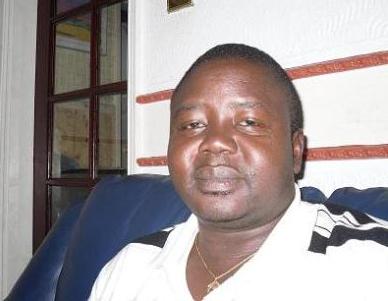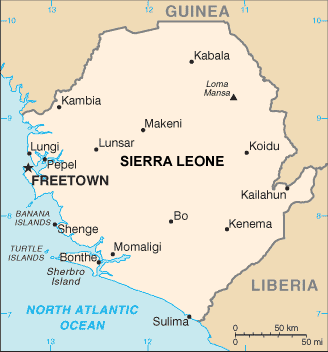Arab Spring or Mistaken Identity of Democracy?
Since the volcanic eruptions in the Middle East, the attempt to transform Egypt into the political laboratory for the region’s litmus test for democracy has been fraught with socio-cultural gridlocks. Whether the rise against Mubarak was a domino effect from Tunisia, or a genuine call for democracy, I know a guy who is sure to manage a wry smile today; even on his sick bed. Since the wind of change swept across the region three years ago, many political pundits have been trying to ascertain the causal factors that saw age old systems come tumbling down like a pack of cards. Although some will agree that it was a domino effect from the Tunisian factor, it is also plausible to conclude, that it was the ultimate desire of a people for change. The question is whether it was change for change sake or genuine change for democracy. This view is open to debate. What is clear though, is that in Egypt, like the other countries, the people exposed themselves to their deepest fear; the fear of fear. They let go of fear and fear had no power. With fear gone, the fear of freedom also fizzled, vanished and evaporated. Confusing? Try this, “the key to change…… is to let go of fear”. Now the people are free or are they?
The irony here is that the Western powers, as mid wives of this change were hoodwinked into a false sense of indulgence and self aggrandisement; believing that their sermon for democracy had finally reached its disciples in the Middle East. By preaching the gospel of democracy, which in simple terms is “the will of the people”, the west had sleepwalked itself into the “political islamisation” of the region proper. The Muslim brotherhood, who like medusa the gorgon, was the largest opposition group under Mubarak; with branches of different nomenclature across the region. Despite the variance in name across the region, some critics believe that the desire to establish Muslim states, under Sharia law has always been the guiding principle that glues them together. You can call it Hamas, Hezbollah or otherwise, but the tenets remain the same. They remained in opposition under the “benevolent dictatorship” of Mubarak. If anything, and under the guise of democracy, the so-called Arab Spring ironically but successfully catapulted the Muslim Brotherhood into prominence. In short, it was there, on the plate.
It is plausible to conclude that some western powers will be scratching their heads and asking “what have we got ourselves here”? This question was more so reinforced by the recent perennial celebration of atrocities between Israel and Hamas; which left 5 and 140 dead on both sides respectively. Unlike the days of Mubarak, Mursi’s Egypt recalled its ambassador/envoy from Israel and summoned the Israeli envoy in Egypt for an explanation. A top Egyptian official was sent to Palestine to show its support. A photo op, showing the official weeping for a dead Palestinian child did not go amiss either. What did Hamas and Israel actually gained from their recent cock fight? The brokered cease fire saw both sides claiming victory; even after the avoidable loss of lives. Talk about sense of humour. If anything, the only winner in this saga was the Muslim brotherhood again, who by design or default was thrust into the limelight as peace merchant. The Muslim brotherhood brokered a peace deal between Palestine/Hamas and Israel. Now we have a new kid on the block; Egypt’s got talent. Turkeys are now voting for Christmas and foxes are protesting for the welfare of the poultry kindred.
In case anyone was wandering how “power corrupts”, and how “absolute power corrupts absolutely”, try some inspiration from Mursi’s government. As if to reward himself for a job well done, Mohamed Mursi, the Egyptian president passed a “DECREE” that grants him extensive powers. According to this decree, “no authority can revoke presidential decisions”. Has anyone seen my book, Animal farm? “Experience has shown that even under the best forms of government, those entrusted with power have, in time, and by slow operations, perverted into tyranny” ( T. Jefferson).
Meanwhile 22 groups have signed an open letter saying “the president has dealt a lethal blow to the Egyptian judiciary”. Mohamed Albaredi, former IAEA Inspector of “weapons of mass destruction fame”, and opposition politician has stated that “there can be no dialogue with Mr Mursi while the decree is in force” (BBC). According to the Cairo Institute of Human Rights, “The president, who now possesses authorities beyond those enjoyed by any president or monarch in Egypt’s modern history, has dealt a lethal blow to the Egyptian judiciary, thereby declaring the beginning of a new dictatorship in which it is not permitted to oppose the president, criticize his policies, or challenge his decisions.” The grin on that guy’s face is getting wider. With the Muslim brotherhood calling for a one-million -man march in support of the decree on Tuesday, the stage has been set for a round of skirmishes and demonstrations; as opponents brace themselves for counter demonstrations. The battle lines have been drawn between justice and power. Both will have to come together, so that whatever is powerful will be just, and whatever is just will be powerful. Sit back and watch the political alchemy unfold on the landscape of the UN’s Middle East step child.
Many observers are now realising the dialectics of the Arab Spring, which appears to be a mistaken identity for the desire for democracy. The Muslim Brotherhood would like you to believe that the decree is for good intentions. “Concentrated power is not rendered harmless by the good intentions of those who create them”. Concentrated power has always been the enemy of liberty. There has been some diplomatic ripples and unease since Mursi’s latest move. Dictatorships naturally arise from democracy, and the most aggravated form of tyranny and slavery out of the most extreme liberty. (Plato). While Western powers can only “express concerns” about Egypt’s tide of affairs, the revolution is fast becoming “a dictatorship of the exploited against the exploiters”.
Mursi’s critics will see his latest move as the best example of the difference between a democracy and a dictatorship. In democracy you vote first, which is what the Egyptians did. In a dictatorship, you don’t need to bother with voting; “no authority can revoke presidential decisions”. Sounds familiar? Its spring time in Animal farm and the pigs have come out to fly. The fall of Mubarak’s regime was expected to open the way for efforts to build more just, social, political and economic relationships, in place of oppression and all forms of injustice.
We saw the euphoria that gripped the nation in Tahir square. What the electorate did not factor into their utopian euphoria was that, with a pathetic belief in the collective wisdom of individual ignorance, “whatever promises offered by dictators in any negotiated settlements, no one should ever forget that the dictators may promise anything to secure submission from their democratic opponents, and then brazenly and unashamedly violate those same agreements” .Someone once said that democracy is about choosing your dictators, after they have told you what you think it is you want to hear. The battle lines have drawn between the Muslim Brotherhood, who support Mursi’s ironically labelled “Freedom and Justice” party, and the residents of Tahir Square. This was not the cry for democracy that saw Mubarak go; or does this mean that “democracy is simply the bludgeoning of the people by the people for the people? (O.Wilde).
Don’t forget to turn the lights off.
Stay with Sierra Express Media, for your trusted place in news!
© 2012, https:. All rights reserved.







Bloody Democracy
/
Arab Spring or Mistaken Identity of Democracy? | Sierra Express … http://t.co/PBonGmxX
27th November 2012